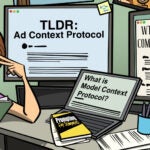 The past year may have seemed like 2020 redux.
The past year may have seemed like 2020 redux.
But in programmatic media, 2021 has brought a world of change.
Ad tech and mobile marketing companies flooded the stock exchange, and already-public companies, including Magnite, Digital Turbine and Media and Games Invest (MGI), which owns the ad tech business Verve Group, have become active consolidators.
AdExchanger took a look at some of the deals and categories that fueled an M&A frenzy this year.
The CTV SSP
Legacy SSPs have been on years-long consolidation sprees.
Last year, Rubicon Project and Telaria merged to form Magnite. In 2021, that momentum continued with a $1.17 billion deal for SpotX, which was previously owned by the European broadcaster RTL Group, and a $31 million acquisition of the TV and video ad server SpringServe.
The billion-dollar SpotX valuation is quadruple what RTL paid for the company in 2017.
Tremor Video has been on an M&A journey as well. The company sold its supply-side business Telaria to pre-Magnite Rubicon Project, and the rest of the business went to Taptica, which was later renamed Tremor. Before the rebrand, Taptica bought ad exchange RhythmOne for $176 million. Last year, the newly formed Tremor purchased SSP Unruly from News Corp.
This year, the company acquired Spearad, a CTV ad server.
Historically, DSPs and SSPs have been kept separate from ad server businesses. Ad servers are the source of reconciliation data, meaning they decide whether ads were served or visible and whether advertisers should pay for an impression. Although walled gardens can often get away with bundling an ad server and grading their own homework, open programmatic companies generally could not.
But SSPs need an ad server for CTV.
Television campaigns are planned weeks in advance and require more complicated ad-serving decisions. Brands with upfront deals may have guaranteed rates, while other brands may have been guaranteed reach among a certain demographic, say, 18 to 35-year-old men in Chicago.
An ad server becomes a necessary component for the SSP and exchange to understand whether to bid programmatically or default to a direct guaranteed deal.
“We believe video is strong enough to put our efforts into that one element,” Tremor CEO Ofer Druker told AdExchanger last year. “We’re spending all of our resources there and thinking two or three years ahead, when I think we’ll look back and say this was clearly the winning format.”
The verification vendors
Ad verification companies, which determine whether ads were viewable, brand safe and seen by humans rather than bots, have been consolidators as well.
DoubleVerify IPO’d in April of this year and a few months later acquired German verification and measurement startup Meetrics. In November, DoubleVerify dropped $150 million to buy OpenSlate, a contextual targeting company.
Integral Ad Science went public in June following its acquisition of programmatic payments auditing service Amino Payments earlier in the year. After hitting the public market and adding cash to its balance sheet, IAS dropped $220 million to buy Publica, a CTV ad server and ad buying company. Last month, IAS closed its third acquisition of the year for the contextual advertising company ADmantX.
IAS’s acquisition of Publica was one of the more interesting deals of the year – not because it was a large transaction, but because Publica participates in ad buying by running a CTV ad server for publishers. For the first time, an ad verification company owns a business that facilitates media transactions, setting the stage for potentially awkward scenarios if IAS verification data is used to determine the value of Publica-served campaigns.
Last up, bonus points for Human, formerly White Ops, a fraud and verification company that was acquired by Goldman Sachs in December 2020.
Content recommendation consolidation
Taboola and Outbrain, the two leaders in content recommendation, first started doing the merger dance in 2019, with plans to combine into one dominant player in the category. In 2020, that deal was kiboshed, in part related to concerns from the British competition regulator.
Not to let moss grow, both companies went public in July of this year.
Outbrain raised $160 million for its IPO, some of which it spent to acquire Swiss contextual video advertising startup Video Intelligence AG in November.
Following its own IPO, Taboola made a splashy $800 million acquisition of Connexity, a leader in ecommerce affiliate marketing.
Performance marketing
The bounty hunters of the mobile industry have also been buying up scale and full-funnel capabilities this year to help trigger everything from app installs, subscriptions and purchases to flights, travel bookings and hotel stays.
System1 announced its intention to go public this year via SPAC, merging with an already-public shell company, in this case owned by the famous financier Bill Foley.
But System1 was already an aggressive acquirer before its proposed SPAC merger. The company owns a collection of early internet media assets: MapQuest, Info.com, HowStuffWorks and CarsGenius. Earlier this month, it acquired RoadWarrior, a route-planning app.
The mobile acquisition company ironSource, however, had perhaps the busiest year of M&A. The company IPO’d in June with a SPAC merger after acquiring in-app monetization analytics startup Soomla and creative developer product Luna Labs. Following its IPO, ironSource closed back-to-back deals in October for app monetization companies Bidalgo and Tapjoy.
Although Digital Turbine IPO’d in 2014, it was another six years before its next acquisition, which was for the mobile telco data company Mobile Posse. But this year the deal making has been breakneck.
Digital Turbine spent $400 million to pick up AdColony; $22.5 million for in-app personalization tech provider Triapodi (also known as Appreciate) and $600 million for app monetization platform Fyber, the “cherry on top” of Digital Turbine’s overarching ad tech strategy.
Mobile game on
Mobile game developers have begun to monetize their networks and user bases more like walled gardens – with first-party data and self-reported metrics such as sales or installs.
The pioneer in the category is AppLovin. In 2020, AppLovin made waves with its acquisition of Machine Zone, a major game developer. This year, AppLovin added to its ad tech arsenal with two deals worth roughly $1 billion a piece: mobile measurement company Adjust in February and a surprising move in October to take mobile ad exchange MoPub off Twitter’s hands.
AppLovin also went public this year.
But it’s not the only active acquirer combining mobile games and ad tech.
German holding company MGI created an ad tech subsidiary called Verve Group in 2020 after buying location data company Verve.
In January 2021, Verve Group acquired mobile video ad platform LKQD from Nexstar. In July, Verve Group snapped up Smaato for $170 million. The DSP Match2One was added to the mix in October.
*This article was edited because the original mischaracterized Publica as an ad-buying platform.












